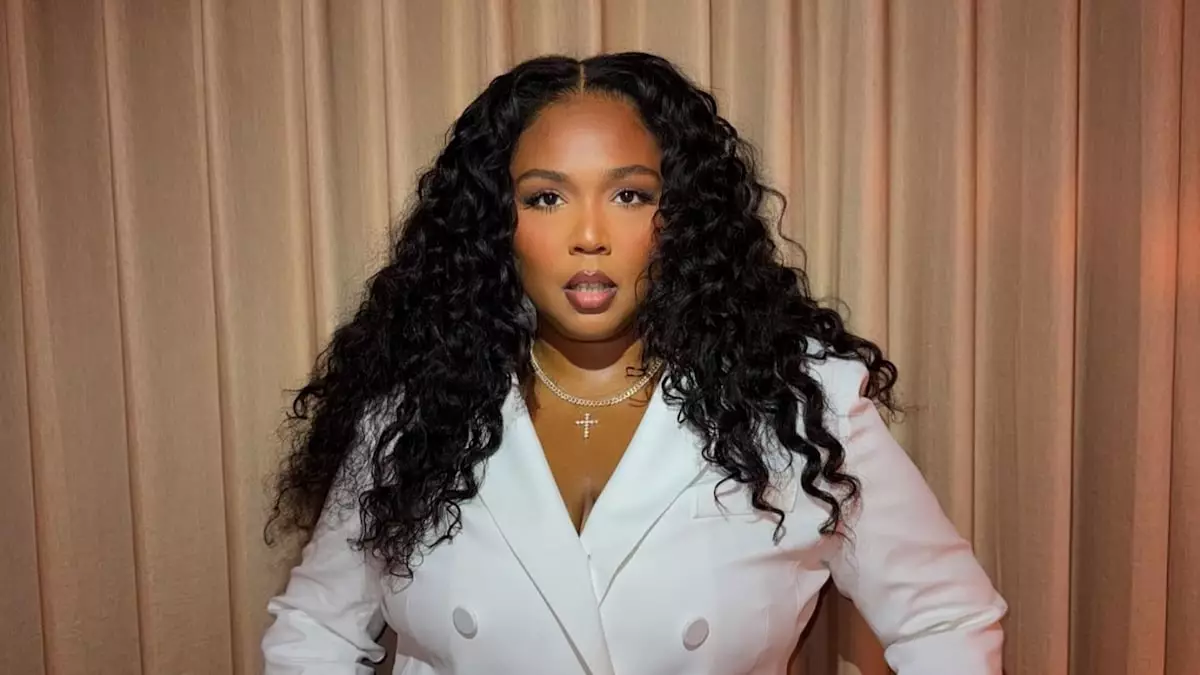Lizzo, the multi-talented singer and cultural icon, is not just making waves in the music industry; she’s also redefining personal fitness and self-acceptance. Recently, fans were treated to an eye-catching series of photos as Lizzo basked in the sun during a luxurious vacation. Dressed in an array of striking swimwear, she exuded confidence amidst the backdrop of palm trees and serene blue waters. The singer showcased her evolving physique in a selection of bikinis and one-pieces, each outfit highlighting her unique shape and vibrant spirit. These images are not merely a reflection of weight loss; they encapsulate a journey of self-discovery and empowerment, elements intrinsic to Lizzo’s public persona.
In her quest for a healthier lifestyle, Lizzo revealed that her approach to fitness is rooted more in personal well-being than societal standards of beauty. She shared that after engaging in a rigorous regimen of weight training coupled with careful attention to her diet, the change in her physique became evident over five months. However, Lizzo’s primary focus has been the enhancement of her overall health rather than simply seeking a slimmer silhouette. “Repair over resentment,” she wrote in a recent affirmation, emphasizing her commitment to personal growth and self-care over external expectations. Her statements resonate deeply with those who feel trapped by societal pressures regarding body image.
In interviews, Lizzo quantified her weight loss as a slow and methodical process, distinct from the instant transformations often promoted in popular culture. She candidly acknowledged the reality that significant changes may not be immediately perceptible: “If anyone who’s on a natural weight-loss journey knows, losing weight is actually the slowest thing in the world.” Such vulnerability invites a broader conversation about the nature of fitness and weight loss, urging society to appreciate the journey rather than fixate solely on the end result.
Throughout her career, Lizzo has taken pride in championing body positivity, championing the idea that beauty exists in diverse forms. Her bold declarations about self-love not only uplift her but also serve as a source of inspiration for many who resonate with her message. In a previous moment of reflection, she articulated the importance of self-acceptance, stating, “I am beautiful, I am strong, I do my job, and I stay on my job.” By declaring herself a “body icon,” Lizzo challenges conventional ideals and asserts that beauty can’t be confined to a single narrative or image.
Despite her confidence, Lizzo is not immune to the scrutiny that comes with public life. She has frequently addressed the relentless discourse surrounding her size, revealing the frustrations that accompany being a subject of public analysis. Lizzo has not shied away from acknowledging her reality: “Okay, we all know I’m fat. I know I’m fat. It doesn’t bother me.” This straightforward assertion underscores the strength of her self-image, pushing back against the innate societal tendency to equate worth with weight. It’s a dialogue that fosters understanding and challenges critics who fail to recognize the multifaceted nature of health and happiness.
Lizzo is more than just a singer; she is a powerful advocate for self-acceptance, highlighting the importance of focusing on one’s personal health journey rather than succumbing to societal pressures. The images she shares are not merely about her physical transformation but signify a broader narrative about embracing oneself fully—flaws and all. As she continues to break barriers in both music and body positivity, Lizzo remains a beacon of hope for those striving to find their own version of beauty and strength.

